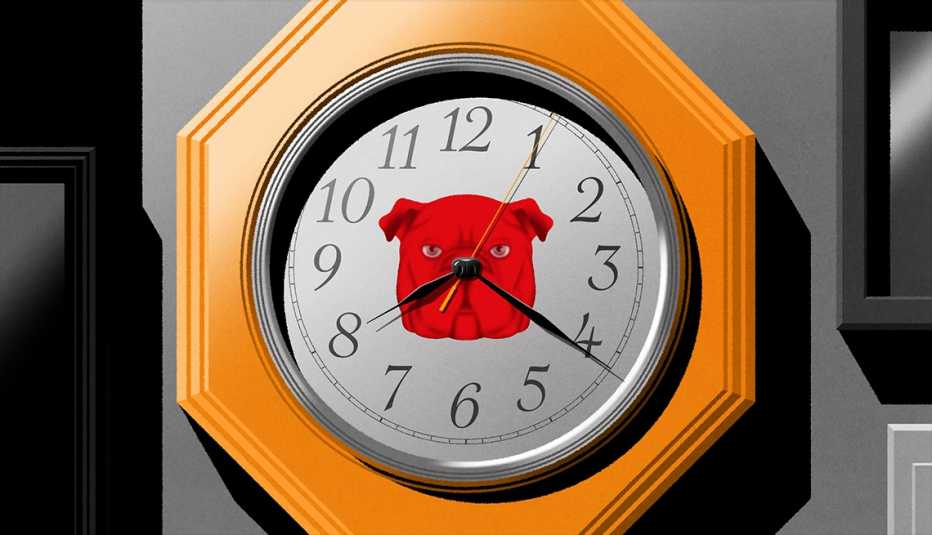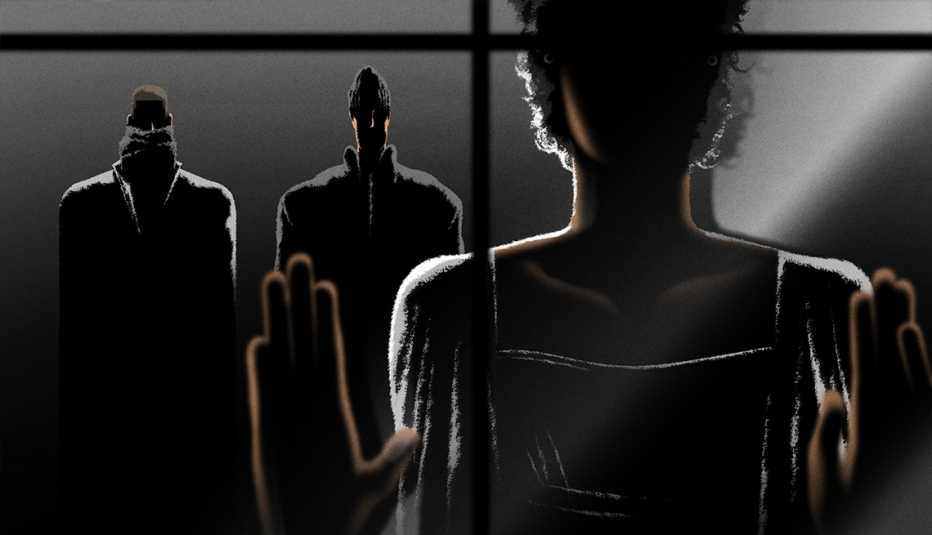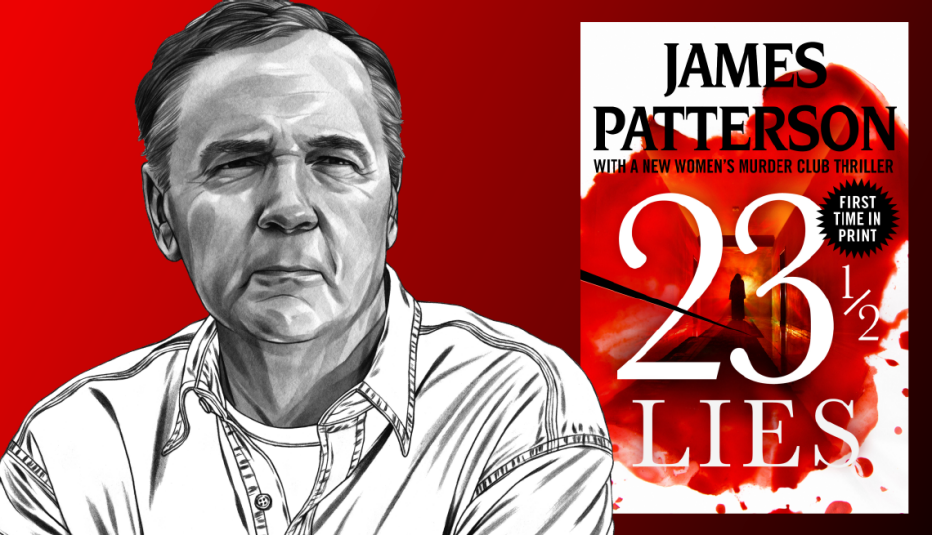Staying Fit


CHAPTER 29
CONKLIN AND I WERE at our desks at eight, filling out the incident report and watching the time.
Kingfisher’s trial was due to start at nine, but would the trial actually begin? I thought about the power outage that had occurred two days ago, followed by the bomb explosion and the threatening message that had read This was a test. Mala Sangre. And I wondered if Kingfisher had already left the Hall through the drain in his shower, El Chapo style.
His trial had been postponed three times so far, but I had dressed for court nonetheless. I was wearing my good charcoal-gray pants, my V-neck silk sweater under a Ralph Lauren blazer, and my flat-heeled Cole Haan shoes. My hair gleamed and I’d even put on lipstick. That’s for you, Mr. Kingfisher.


AARP Membership— $12 for your first year when you sign up for Automatic Renewal
Get instant access to members-only products and hundreds of discounts, a free second membership, and a subscription to AARP the Magazine.
Conklin had just dunked his empty coffee container into the trash can when Len Parisi’s name lit up on my console.
I said to Conklin, “What now?” and grabbed the phone.
Parisi said, “Boxer, you and Conklin got a second?”
“Sure. What’s up?”
“Counsel for the defense is in my office.”
“Be right there.” I hung up, then said to Conklin, “I’m guessing Sierra wants to change his plea to insanity.”
He said, “From your lips to God’s ears.”
It was a grim thought. In the unlikely event that Kingfisher could be found guilty because of mental disease or defect, he would be institutionalized and one day might be set free.
“There’s just no way,” said Conklin.
“Wanna bet?”
Conklin dug into his wallet and tossed a single onto the desk. I topped his dollar bill with one of mine and weighed down our bet with a stapler.
Then we booked it down the stairs and along the second-floor corridor at a good pace, before entering the maze of cubicles outside the DA’s office. Parisi’s office door was open. He signaled for us to come in.
Jake Penney, the King’s new attorney, sat in the chair beside Parisi’s oversized desk. He was about thirty-five and was good-looking in a flawless, The Bachelor kind of way. Because Cindy researched him and reported back, I knew he was on the fast track at a topflight law firm.
Kingfisher had hired one of the best.
Conklin and I took the sofa opposite Parisi, and Penney angled his chair toward us.
He said, “I want to ask my client to take Elena’s offer. He changes his plea to guilty, and he goes to a maximum-security prison within a few hours’ drive of his wife’s residence. That’s win-win. Saves the people the cost of a trial. Keeps Mr. Sierra in the USA with no death penalty and a chance to see his kids every now and again. It’s worth another try.”
Parisi said to Conklin and me, “I’m okay with this, but I wanted to run it by you before I gave Mr. Penney an okay to offer this deal to Sierra.”
I said, “You’ll be in the room with them, Len?”
“Absolutely.”
“Mr. Penney should go through metal detection and agree to be patted down before and after his meeting.”
“Okay, Mr. Penney?”
“Of course.”
There was a clock on the wall, the face a hand-drawn illustration of a red bulldog.
The time was 8:21.
If the King’s attorney could make a deal for his client, it had to be now or never.
CHAPTER 30
CONKLIN AND I WAITED in Parisi’s office as the second hand swiped the bulldog’s face and time whizzed around the dial.
What was taking so long? Deal? Or no deal?
I was ready to go up to the seventh floor and crash the conference when Parisi and Penney came through the door.
“He wouldn’t buy it,” Parisi said. He went to his closet and took out his blue suit jacket.
Penney said, “He maintains his innocence. He wants to walk out of court a free man.”
It took massive willpower for me not to roll my eyes and shout, Yeah, right. Of course he’s innocent!
Parisi shrugged into his jacket, tightened the knot in his tie, glanced at the clock. Then he said, “I told Sierra about the attack on you two by Mala Sangre thugs. I said that if the violence stops now, and if he is convicted, I will arrange for him to do his time at the prison of his choice, Pelican Bay. He said, ‘Okay. I agree. No more violence.’ We shook on it. For whatever that’s worth.”
Pelican Bay was a supermax-security prison in Del Norte County, at the very northwest tip of California, about fifteen miles south of the Oregon border. It was a good six-and-a-half-hour drive from here. The prison population was made up of the state’s most violent criminals and rated number one for most gangs and murders inside its walls. The King would feel right at home there.
“I’ll see you in court,” Parisi said to Penney.
The two men shook hands. Conklin and I wished Parisi luck, then headed down to the courtroom.
Kingfisher had agreed to the safety of all involved in his trial, but entering Courtroom 2C, I felt as frightened as I had when I woke up this morning with a nightmare in my mind.
An AK had chattered in the King’s hands. And then he’d gotten me.
CHAPTER 31
KINGFISHER’S DAY IN COURT had dawned again.
All stood when Judge Crispin, looking irritated from his virtual house arrest, took the bench. The gallery sat down with a collective whoosh, and the judge delivered his rules of decorum to a new set of spectators. No one could doubt him when he said, “Outbursts will be dealt with by immediate removal from this courtroom.”
I sat in a middle row between two strangers. Richie was seated a few rows ahead to my right. Elena Sierra sat behind the defense table, where she had a good view of the back of her husband’s head. A white-haired man sat beside her and whispered to her. He had to be her father.
The jurors entered the box and were sworn in.
There were five women and nine men, including the remaining alternates. It was a diverse group in age and ethnicity. I saw a range of emotion in their faces: stolid fury, relief, curiosity, and a high level of excitement.
I felt all those emotions, too.
During the judge’s address to the jurors every one of them took a long look at the defendant. In fact, it was hard to look away from Kingfisher. The last time he was at the defense table, he’d cleaned up and appeared almost respectable. Today the King was patchily shaven and had flecks of blood on his collar. He seemed dazed and subdued.




































































More From AARP
Free Books for Your Reading Pleasure
Gripping mysteries and other novels by popular authors available online in their entirety for AARP members